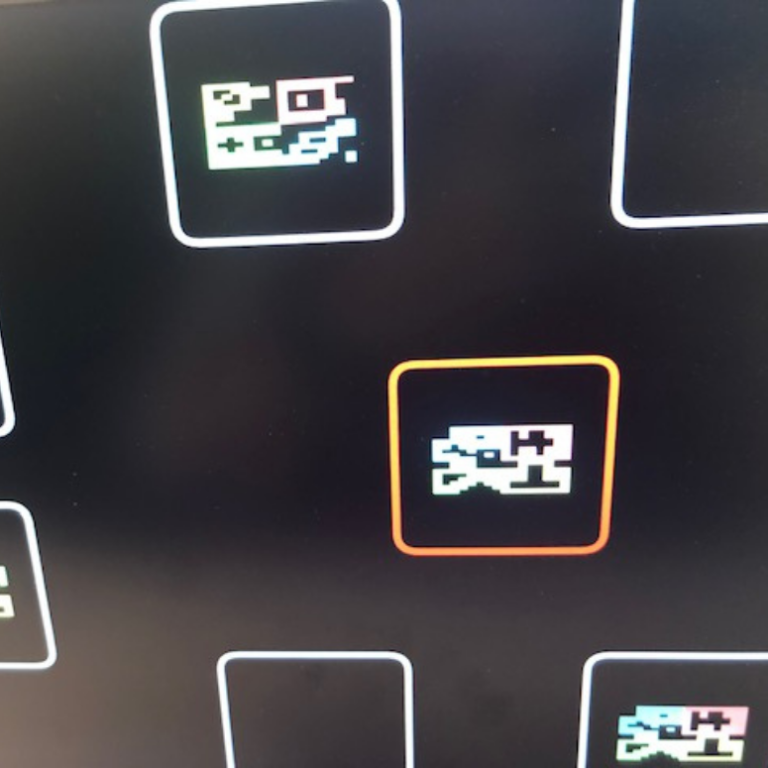On New Year’s Day, I took the Apple Watch provided by the Intuition app/study out of the box and started using it. I put my Fitbit watch away for now.
Biogen provides the Apple Watch as a part of a virtual research study into the brain health of participants. Using the Apple Watch and the Intuition app, participants in the research study are providing details about daily activity to the researchers. The researchers will use the aggregate data collected from all participants to identify digital biomarkers to help measure thinking and memory in adults, as well as identify longer-term changes in brain health.
Biogen is in the business of using science and technology to support better brain health.
I found out about the study in a Facebook ad. It seemed serendipitous when the ad for the Intuition app floated across my Facebook feed. They hooked me at the offer of a free Apple Watch.
I’d been thinking about trading in my Fitbit for a while or at least wanting to see what the differences are between the two. The cost of a new Apple Watch had put me off when my Fitbit did everything I wanted as far as I knew.
The process for signing up for the Intuition program is straightforward. There’s an online application process which includes collecting current demographic information. There are also several explanations and approvals related to the data your watch will share and the privacy processes in place to protect you as an individual.
The study is open to anyone 18 to 86 with access to an iPhone. You can get started by downloading the Intuition app from the App Store.
I had a moment’s pause as I read through all the approvals I was giving. I agreed to all the requests because they just want the data to analyze how activity and interactions impact brain health and function.
I know quite a few people who worry about losing their minds as they age. It’s really not something I worry about. The more we learn about brain health all the better.
Using technology allows the researchers to have real data rather than self-reported data. It also allows them to collect the data in our natural habitat rather than a laboratory setting. I would not have signed up for a study asking participants to keep a diary of all their exercise movements and interactions. I know I would have inadvertently skipped days and never accurately remembered what happened.
I trust the intentions of the researchers. If at any point I become uncomfortable with what might go on with my data, I can stop allowing the app access and pay for the watch if I want to keep it. I can also return the watch.
You are committing to the study and wearing the watch for two years. I’ve had my Fitbit for over two years and use it to track my steps and other functions, so it didn’t seem like agreeing to take part for two years would be an issue.
In the spirit of “nothing is ever really free” besides allowing the app to collect information on your activity from the watch, they also ask you to take part in regular memory games. These are exercises where you match various shapes and also remember where they show up. The exercises get longer and include more shapes. Each time the exercises take 30 to 40 minutes to complete.
Shapes with No Name
Unlike the memory games of our youth where the pictures on the cards represented something we recognized — a cat, or the 2 of clubs, the “pictures” to be remembered and matched are what I would call shapes with no name. They are in different colors. The exercises are also timed.
They award points for your activity as well as completing the memory exercises. You accumulate points to earn your watch. If you already own an Apple Watch, you can exchange your points for actual cash.
The researchers behind the study don’t give you much detail about how they’re going to analyze the data they aggregate from all the participants. I have some ideas of my own about what would be interesting. For example, if my activity level stays consistent, do my results on the brain games stay consistent over time or improve?
It would also be interesting to look at participants ten or twenty years younger or older than I am. Looking for differences across the individuals with the same level of daily activity could be enlightening.
Anecdotally, my experience is individual activity levels seem to decrease after retirement. If you’re 70 years old with a higher activity level, are results from your brain games better than someone else at your age who is more sedentary?
I consider the Apple Watch and taking part in the Intuition study as small incentives towards maintaining my body and mind at this stage, intending to have the rest of my life be the best in my life.



